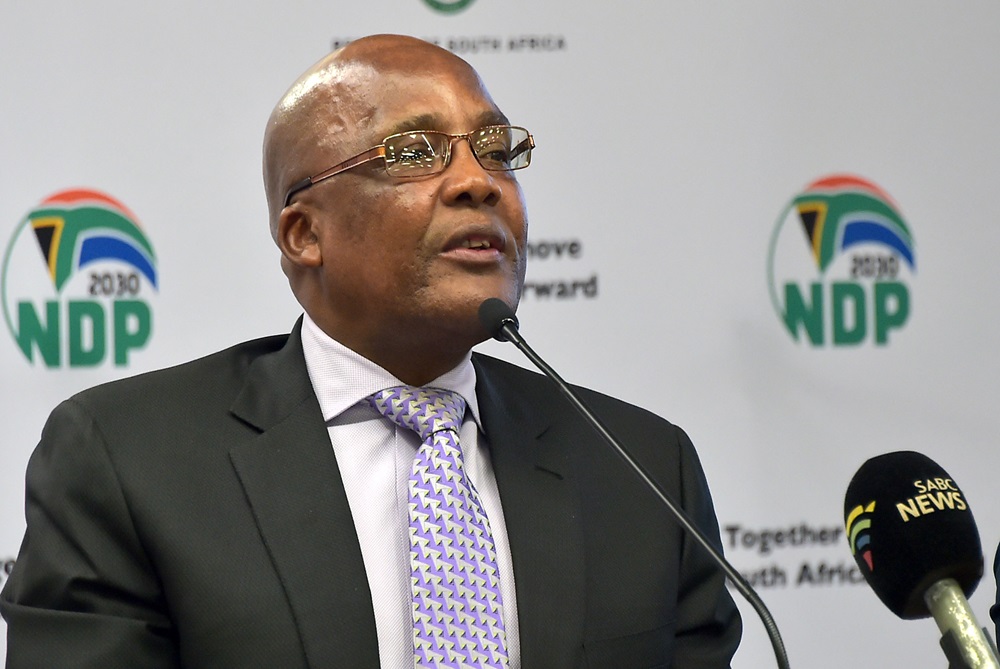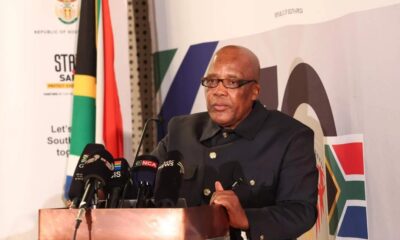News
Motsoaledi, Medical Aids, and the Racial Bias Report: Debate Heats Up Over Health Equity and NHI Push

Health Minister backs racial discrimination report, but critics say it’s a political ploy to force through the NHI
A damning report alleging racial discrimination by medical aid schemes has ignited a heated national debate, with Health Minister Aaron Motsoaledi welcoming the findings and critics accusing him of weaponising the issue to push his long-contested National Health Insurance (NHI) agenda.
The report, led by Advocate Tembeka Ngcukaitobi and compiled by an independent panel, concluded that black healthcare practitioners were significantly more likely to be investigated for fraud, waste, and abuse (FWA) than their white counterparts.
It’s a conclusion that many black doctors say validates their lived experiences, but some industry stakeholders and political voices, believe the timing and framing of the report is more strategic than sincere.
A Controversial Equation at the Centre of It All
The report’s methodology hinged on a “risk ratio”, a formula developed by a UCT mathematician to quantify the likelihood that black providers are more likely to face investigations. According to Ngcukaitobi, the findings clearly show unfair procedural bias in how medical schemes pursue suspected fraud.
But the method used to determine race, provider surnames, has been a lightning rod for criticism. Healthcare funders say it’s unscientific, especially given South Africa’s complex naming conventions and the legacy of racial classification.
Motsoaledi’s Endorsement Sparks Accusations of Political Opportunism
Motsoaledi wasted no time in endorsing the report, describing it as proof that private healthcare operates in racially skewed silos, a point that ties neatly into his pitch for a single, universal health system under the NHI.
However, critics, like the Institute of Race Relations (IRR), say the minister is being opportunistic.
“It’s a blatant and cynical ploy by Minister Motsoaledi to pay lip service to public healthcare failures while vilifying the most operational part of the system,” said IRR’s Hermann Pretorius.
Pretorius argued that while racial bias may exist in broader systems, Motsoaledi is using the report to create a false binary between public and private healthcare in order to justify the NHI, despite the well-documented dysfunctions in the public sector.
Medical Aids Push Back: ‘The Report Is Flawed’
Both Discovery Health and the Board of Healthcare Funders (BHF) came out swinging. Discovery’s CEO, Dr Ron Whelan, said there is no evidence of racial profiling, and called the panel’s methodology misleading and dangerous.
The BHF’s Dr Katlego Mothudi warned that the report, if implemented, could undermine fraud prevention mechanisms and open the door to abuse, ultimately harming scheme members who foot the bill.
Mothudi also claimed that context was ignored: Black practitioners are more likely to serve black-majority scheme members, leading to higher claim volumes and naturally greater scrutiny.
SAMA: Black Doctors Deserve Better
On the flip side, the South African Medical Association (SAMA) applauded the report, saying it affirms what many black practitioners have endured for years, opaque audits, algorithmic red flags, and disproportionately high penalties with little due process.
“Our members deserve procedural fairness, not Kafkaesque systems that leave them fighting shadows,” said SAMA chair Dr Mvuyisi Mzukwa.
SAMA now wants fixed timelines for reform, calling for updates to the Medical Schemes Act and transparent fraud investigation systems. The association also supports Ngcukaitobi’s recommendation for a neutral oversight body independent from the schemes.
Is South Africa Ready for the NHI, or Just Distracted by It?
While the core issue here is racial fairness, the political subtext is clear: this report has become the latest proxy battle for the future of healthcare in South Africa.
For proponents of the NHI, it’s a smoking gun. For opponents, it’s political theatre, a move to distract from failing hospitals, medicine shortages, and collapsed public clinics.
What’s clear is that South Africans are losing patience. On social media, hashtags like #HealthcareJustice and #StopTheNHI trended alongside videos of Motsoaledi’s speeches and practitioner testimonies. TikTok clips of black doctors sharing their audit horror stories racked up thousands of views.
Will the Department of Health act on the report’s recommendations? Will Parliament revisit the NHI Bill in light of this controversy? And can medical schemes regain public trust without transparency?
Health equity or health control? In the battle over how we fix our broken system, every report matters, but how it’s used matters even more.
{Source: The Citizen}
Follow Joburg ETC on Facebook, Twitter , TikTok and Instagram
For more News in Johannesburg, visit joburgetc.com



























